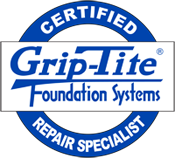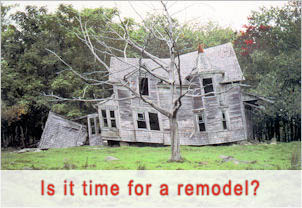
Key Takeaways
- Check any deck installer’s credentials, licensing and insurance to protect yourself from potential risk and to comply with local regulations.
- Evaluate the contractor’s business background, portfolio and references to determine their experience and reputation for quality work.
- Talk project management, material choices, sourcing, and handling of permits so you’re both on the same page.
- Ask about the contractor’s design collaboration process, site preparation, and quality control to make sure your expectations will be met and the installation process is industry standard.
- Ask about post-installation support — such as warranty, maintenance recommendations and willingness to perform future repairs — to protect your investment.
- Compare itemized bids from several contractors, consider your experience with them, and trust your instincts to identify a trusted partner who shares your vision and budget.
To know what questions you should ask before hiring a deck installer, start with basics about their skills, past work, and if they have a valid license. Good installers will provide evidence of insurance, share transparent estimates, and offer reasonable timelines for the work.
Inquire about how they deal with permits, what brands or kinds of wood they use, and whether they provide a warranty on their work. Determine who is going to do the work, if they employ sub-contractors, and how they maintain safety and cleanliness on sites. Competent, direct questions aid you identify pros and walk away from issues afterwards. The second half of this article outlines important questions and advice for choosing the right deck installer for your project.
Why Hiring the Right Deck Installer Matters
A deck isn’t just another weekend project—it’s a significant addition to your home that affects resale value, safety, and aesthetics. A poorly built deck can:
- Collapse under weight due to poor structural integrity.
- Rot quickly if the wrong materials are used or improperly sealed.
- Lead to legal issues if not up to code or approved by your HOA.
That’s why choosing the right installer means more than finding someone with tools and a truck. You’re hiring a professional who should blend craftsmanship, knowledge of building codes, design sensibility, and communication skills.
Verify Their Credentials
It’s a big deal to hire a deck installer. You want someone who not only builds but builds legal and safely. Verifying a contractor’s credentials is the initial move to ensuring your project remains on-time, on-budget, and up to code. The following table provides a good overview of what to look for and why.
Credential Type | What to Ask For | Why It Matters |
License | Proof of current license | Confirms legal operation and code compliance |
Insurance | Liability/workers’ insurance | Protects against property damage or on-site accidents |
Certifications | Certificates, memberships | Shows commitment to high standards |
Business History | References, project samples | Reveals track record and reputation |
Warranties | Workmanship, material details | Ensures accountability for repairs or replacements |
Licensing
Be sure to ask for licensing evidence prior to any work begins. This demonstrates the contractor is licensed to construct decks in your region and understands local regulations.
Take it an extra step and see if they are bonded. Bonding shelters you from losses if the contractor doesn’t complete the work or if they perform shoddy work. Inquire if they’ve encountered any license-related grievances or disciplinary measures. This assists you to identify red flags in advance. Verify their license is up to date and includes your region, since regulations differ even within a single nation.
Insurance
Request a copy of their general liability insurance. This protects you if a person is injured or the property is damaged on the job.
Make sure that their insurance covers all workers, not just the owner. Not all contractors do, which leaves you vulnerable to claims. Inquire about additional insurance for deck work-related damages, such as water leaks. Not all insurance is created equal, so check out the provider’s reputation. Renowned insurers demonstrate that the contractor cares for protection.
Business History
Begin by inquiring into how long they’ve been in business. Experience matters, particularly with the local climate and pesky issues such as mold or termites.
Request references and review their previous work. Images and customer reviews provide authentic perspective on their abilities. If you are able, call former clients and inquire about their experience. Find out how the contractor handles complaints—fast, equitable responses = good service.
Certifications & Professional Memberships
When evaluating a deck installer, look for certifications and memberships in reputable industry organizations. These affiliations show that the contractor is committed to continuing education, safety standards, and best practices in the field.
One of the most recognized organizations in North America is the North American Deck and Railing Association (NADRA). Membership in NADRA signals that a contractor is serious about quality and ethics. NADRA offers its members access to technical training, up-to-date code resources, and certification programs such as the Master Deck Professional Certification, which covers everything from structural integrity to business ethics.
Being part of such professional groups not only demonstrates the contractor’s credibility—it also means they’re more likely to stay current with:
- Evolving building codes and safety regulations
- Emerging deck materials and installation techniques
- Modern design standards and aesthetic trends
Contractors affiliated with NADRA or similar bodies often provide:
- Higher workmanship standards
- Improved warranty coverage
- Better documentation and permitting processes
Key Questions to Consider Before Choosing a Deck Installer
Hiring a deck installer is a significant investment and asking the right questions will help you steer clear of expensive errors. Here’s a quick list of essential questions to ask any deck professional:
- What experience do you have with similar deck projects?
- Which materials do you recommend and why?
- How do you manage the project timeline and communication?
- Do you handle permits and know local codes?
- Could you provide a cost breakdown and reasonable contract?
1. Experience & Specialization
Does your installer have a background in building this type of deck? Ask about their experience with ground-level, raised, or custom designs. It’s also worth checking if they’ve worked with specialty features like pergolas, built-in lighting, or under-deck drainage systems.
A robust portfolio with projects like yours is a good indication they can produce. If you’re considering composite, PVC or natural wood, find out which ones they are most familiar with and how those materials hold up to your local climate. The right specialist will know how to build for climate, drainage, and durability, particularly if you reside where winters are severe or rain is abundant.
2. Project Management
How will your contractor maintain momentum? Inquire about their philosophy with respect to milestones and deadlines. A great installer will have mechanisms in place to maintain progress, even if weather or supply delays occur.
Understand how, if at all, they collaborate with sub contractors and how they intend to keep you informed. Timely and clear communication counts, particularly if your deck project will extend for a few weeks. See what their plan is for on-site supervision, as well—getting someone to supervise the work on a daily basis can help stop errors before they blossom.
3. Materials & Sourcing
The type of decking — natural wood, composite, or PVC– has ramifications for both price, maintenance, and longevity. Inquire what materials align with your objectives and how they acquire them. If you want sustainable or new materials, test whether they’re knowledgeable about the latest trends.
Find out how they process orders and prevent backlogs, and if they can recommend materials suited to your climate. For instance, composite may fit best in damp locations, whereas hardwood performs better in airy spots. Inquire on warranties and long-term care.
4. Permits & Codes
Verify who does permits/inspections. If your deck isn’t up to local codes, you can be fined or even torn down. An experienced pro should know how to get approvals and work through common issues with local ordinances.
Inquire whether they’ve had problems obtaining permits previously—if so, how did they overcome them? Ensure they’ll be on hand for mandatory site visits.
5. Cost & Contract
Ask for a detailed cost breakdown that includes materials, labor, permits, and any possible surcharges. Carefully review the contract terms, especially the payment schedule. Watch for hidden fees that may arise mid-project, and always read the contract thoroughly before signing.
Evaluate Their Process
Choosing the best deck installer for you means understanding their process from beginning to done. A clear, thoughtful process demonstrates professionalism and helps establish the appropriate expectations. Inquire about each stage and you get a feel for their work style, communication style, and ability to produce deliverables that meet your requirements.
Design Collaboration
Ask how the contractor brings your vision to life in the design phase. Some start with simple sketches or digital mockups, while others use advanced CAD software to give you a precise visual representation. If 3D models are available, you may even be able to preview the deck in your actual space before construction begins.
Clarify how flexible the design process is—can changes be made after the initial draft? Are there limits on revisions? For example, if you decide to add built-in seating or tweak the deck size, will those adjustments be possible while you’re still reviewing blueprints?
An experienced contractor will often suggest smart additions like integrated planters, privacy screens, or custom lighting to boost both the beauty and functionality of your outdoor space.
Site Preparation
Inquire regarding site preparation. This typically starts with a site visit for measurements, so you have your project baseline. Good contractors deal with any landscaping or impediments, like trees or concrete pads, that might impact your deck space. They need to describe how they provide drainage and a good base, particularly if you have a sloped or poor soil yard. Inquire about how they maintain the site and control for debris, which is important if you share outdoor space with neighbors or want to minimize disturbance. Some will have hauling old materials away included in their quote, while others will charge you extra.
Quality Control
Inquire what audits and criteria direct their process. See if they break out material costs from labor — it lets you judge the quality of wood or composite boards they use. Discover how and when they quality check themselves—some contractors do a final walk-through with you, others check in at predetermined milestones. If there’s an issue, like a warped plank, inquire as to how they address it and what their workmanship warranty encompasses. Inquire about manufacturer warranties as well – quality decking products usually offer long-term warranty coverage, particularly for weather resistant materials.
Communication and Scheduling
Find out what their typical work schedule is, do crews work weekends or just weekdays. Ensure the timeline for permits, design approval, and actual build is realistic, and inquire how they deal with weather delays. There are contractors, for example, who provide transparent timelines and keep you informed if they encounter delays, which manages expectations from beginning to end.
Discuss Post-Installation Support
Always take a close look at the contract. After your deck is built, support services are really important for keeping it safe, strong, and looking nice over time. Different contractors might offer various services once the job is done, and how much help you get can change a lot based on the company, the materials they use, and how difficult the project is. Homeowners should ask about these services before the work starts because they can affect how well the deck lasts and its overall cost.
- Warranty coverage for materials and labor
- Scheduled or on-demand maintenance checks
- Guidance on cleaning, winterization, and seasonal care
- Advice on detecting early wood rot, loose boards or peeling paint
- Support for meeting local building codes and standards
- Help with repairs or deck modifications
- Tips for maintaining warranties via maintenance.
Warranty Details
Have the contractor explain the warranty, for both the deck materials and the work itself. Certain warranties are just for materials, but others cover labor to repair any installation problems. Things like composite decking, for example, typically require periodic cleaning or sealing to maintain the validity of the warranty.
Warranty length is equally important. Some are only for a year, and others might be for 5 or 10, but they’ll all outline what is, and isn’t included. If something does go awry – warping, rot or cracked boards – inquire about how to initiate a warranty claim and what steps you should take. It does help to read reviews or speak to previous clients to find out if the contractor truly backs their warranty and processes claims efficiently.
Maintenance Advice
Regular maintenance is the most effective method to maintain your deck in good condition and prevent costly repairs. Request a definite maintenance schedule—this could include washing the deck with soap, sealing wood or inspecting fasteners. For composite decks, a basic cleaning with water is sometimes sufficient, however wood decks tend to require a little more effort.
Receive advice to identify issues at an early stage, such as splinters, mold or loose railings. Wondering how to prepare your deck for winter or monsoon rains. Some contractors will even provide checklists or come out for annual inspections. The top pros don’t mind answering questions or offering advice post-job.
Future Repairs
A good contractor will be happy to do any future work, such as repairing storm damage or installing additions. Inquire about whether they provide a service plan, or will return for repairs post-build. This is important if your region experiences harsh weather, as wind, rain, and sun can all take a toll.
Find out if they manage warranty repair claims, or if you’ll have to deal with a third party. Measure how quickly they answer calls or emails you make for assistance when the deck is constructed.

The Questions You Might Not Think to Ask
Selecting a deck installer is about more than just price shopping or portfolio surfing. At the heart of a winning deck project are the unspoken questions—how your contractor navigates roadblocks, coordinates outside crews, and stays on top of the fast-moving deck industry. Inspecting your previous projects for wear or wood rot and understanding the importance of routine maintenance, particularly for composite decking, are factors in identifying a trusted contractor. Here are several deeper questions that reveal a contractor’s true reliability and expertise:
- How do you deal with scope creep or surprise site issues?
- How do you ensure your work satisfies trade standards and local codes?
- Can you show proof of insurance and relevant certifications?
- Do you track completed projects to maintain quality?
- What about warranty claims or post-installation issues?
Problem Solving
Ask the installer for examples of times when things went awry — hidden structural issues, permit delays, design changes mid-project — and how they fixed them. Real-world stories demonstrate their expertise and integrity far more effectively than a smooth sales pitch.
Discussing project delays, seek concrete responses on how they control their time. For example, if heavy rains set the work back, do they shift the timeline and budget immediately, or wait until issues accumulate? The way they handle setbacks — especially for projects that can span multiple weeks — reveals whether they think ahead or just respond.
Subcontractor Use
If the contractor works with subcontractors, inquire about how they choose and vet these groups. Good installers have ways of sure to select craft labor and monitor their work.
You want to know if they watch over these outside teams. A good contractor will make periodic inspections, not just arrive at the commencement and completion of the work.
Inquire how they guarantee that every component of your deck—from the frame to the finish—matches this quality level. This is prime in areas where local laws/codes might vary between areas.
Industry Knowledge
One leading contractor stays on top of trends, such as composite decking, which can be produced from as much as 95% recycled material and reduces maintenance costs years down the line. It can reduce both expenses and your carbon footprint.
They ought to be aware of local permit requirements, which vary by location. Ask if they attend any training or industry events, as this demonstrates that they desire to remain up-to-date and utilize the best building methods.
Cost and Value
Question them about what materials they use and why. Decks constructed with treated wood are cheaper, whereas vinyl or composite may be as high as $45 per square meter, but they endure longer and require less maintenance.
Gain insight into pricing—these can range from $10,000 to well above $250,000 depending on size, material, and season. Crazy seasons like spring and summer might drive prices higher. Request a timeline so you know what to expect.
Making Your Choice
Deciding on a deck installer is a balance of technical, fiscal and personal considerations. What you want is to choose someone that can meet local code, deliver quality work, and construct with materials that fit your climate, needs and lifestyle. Think about the contractor’s history, their experience with permits and details managing your project.
Evaluating Quotes
Begin with a side by side bid comparison. The table below highlights how to lay out key details for easy review:
Contractor | Total Cost (USD) | Material Type | Timeline (weeks) | Permits | Maintenance Needs | Details Provided |
Alpha | 13,500 | Composite | 4 | Yes | Low | High |
Bravo | 12,200 | Treated Wood | 3 | No | High | Medium |
Charlie | 14,000 | Vinyl | 5 | Yes | Low | High |
Check the craftsmanship
Composite and vinyl may last longer and require less maintenance than wood, however, they are more expensive initially. Check the bids for line-item specifics. Greater specificity sends transparency—seek out explicit annotations on labor, materials and permits handling. If a bid is general or excludes permit fees, verify with the contractor. Inquire as to if they tackle wood rot or weathering, particularly if you reside in a wintery area.
Trust Your Gut
Consider your feelings with each contractor. Did they leave time to answer questions? Did they hear you when you detailed your vision or your concern about upkeep and weather?
A contractor who returns your call immediately, is well-spoken and brings examples of their work has to be more reliable. If something about their communication or demeanor gives you pause, don’t brush it aside. Your comfort level is just as important as the figures.
The right fit combines your budget, your design objectives and your feeling of confidence. If you feel reaffirmed after every talk, that’s a good indication. If you’re rushed or pressured, continue searching.
Conclusion
To hire a deck installer, specific steps assist. Inquire about history of work, prior jobs, check their license. Check out what questions they ask before hiring a deck installer! Listen for definitive schedules, pricing and who will be on your project daily. Inquire about clean-up and after job support. Seek responses that demonstrate true expertise and concern.
A good installer will assist with candid conversation and transparency. Ultimately, always trust your own instinct once you get answers. So you’re ready to start your deck project. Compile your top questions and contact local pros. Your smartest selection begins with what you inquire about.
Your Dream Deck Installed by Mares & Dow Construction & Skylights – Let’s Build a Beautiful Outdoor Space Together
Expand your living space and elevate your outdoor lifestyle with a custom deck designed and installed by Mares & Dow Construction & Skylights. With more than 40 years of construction experience, we specialize in high-quality deck installations that blend style, durability, and functionality.
Whether you’re picturing a peaceful retreat, an entertainment hub, or a seamless indoor-outdoor transition, we tailor each deck to fit your home’s architecture and your personal vision.
Key benefits of our deck installation services include:
• Creating a welcoming outdoor area perfect for relaxing, dining, or hosting
• Boosting property value with expert craftsmanship and quality materials
• Offering long-lasting, weather-resistant solutions customized to your space
Proudly serving Contra Costa County, including Alamo, Danville, Orinda, Martinez, and San Ramon, Mares & Dow Construction & Skylights is your trusted deck-building partner for timeless design and long-term performance.
Contact Mares & Dow Construction & Skylights today for a free, no-obligation quote and let’s build your dream deck together.
Disclaimer
The materials available on this website are for informational and educational purposes only and are not intended to provide construction, legal, or professional advice. You should consult with a qualified general contractor or industry professional for advice concerning any specific construction project, remodeling plan, or structural concern. Do not act or refrain from acting based on any content included on this site without seeking appropriate professional guidance. The information presented on this website may not reflect the most current building codes, regulations, or industry best practices. No action should be taken in reliance on the information on this website. We disclaim all liability for actions taken or not taken based on any or all of the contents of this site to the fullest extent permitted by law.







 based on
based on 

